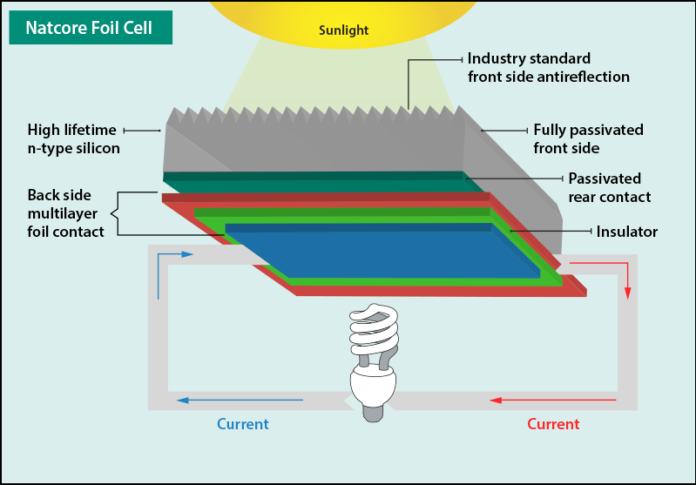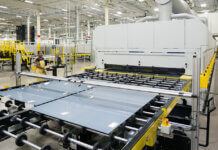Natcore Technology Inc., a company focused on significantly lowering the costs and improving the power output of solar cells, says it has dramatically streamlined the fabrication method for its Natcore Foil Cell, allowing for even lower-cost production methods.
The use of laser processing to create Natcore’s all-back-contact cell structure has been eliminated and replaced by a carrier selective contact process, the company says. This is combined with a foil metallization that can be cheaply made with high-speed roll-processing methods.
According to the company, these advances have maintained – and, in fact, enhance – the two key advantages of Natcore’s Foil Cell:
1) The elimination of high-cost silver. Natcore’s Foil Cell replaces silver, and its high material costs and complicated production processes, with aluminum foils. At approximately 1/300th the cost of silver, aluminum allows for more metal to be used to maintain conductivity while also enabling high-speed, high-volume materials handling and processing.
2) The potential for ultra-high efficiencies in an affordable production cell. The silicon heterojunction (SHJ) structure of Natcore’s Foil Cell is the same basic structure used to achieve world-record silicon cell efficiencies of over 26% by major manufacturers in experimental solar cells.
Natcore claims its innovative use of pre-fabricated foils to produce this structure will allow, for the first time, the low-cost mass manufacturing of these ultra high-efficiency, all-back-contact solar cells.
Natcore is targeting over 25% real-world efficiency for its eventual production solar cells – representing roughly a 25% performance improvement over many high-end commercial cells being installed today, the company says.
“The solar industry is exceedingly competitive,” notes Brien Lundin, Natcore’s chairman. “Studies show that they have to achieve at least a 0.6 percent performance improvement every year to survive, yet they struggle to clear even this low bar. Because Natcore’s Foil Cell will represent a generational leap in performance, we are confident that major industry players will join us in advancing our technology to market.”
Natcore has begun an accelerated development program to produce a prototype with the new process, as well as include production cost and efficiency modeling by independent authorities.
The result will be a functioning prototype proving the essential production process, as well as studies establishing the ultimate affordability and ultra high-efficiency potential of the Foil Cell, the company says. Natcore plans to pursue partnerships to commercialize its technology. To fund an accelerated prototype program, as well as general corporate expenses, Natcore will conduct a financing, the terms of which have yet to be determined.




